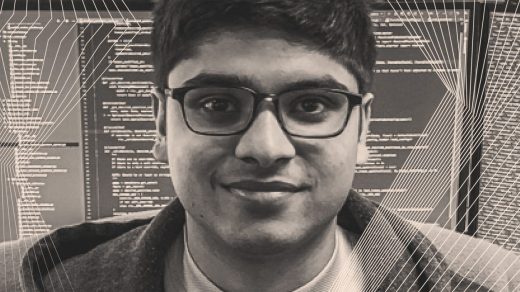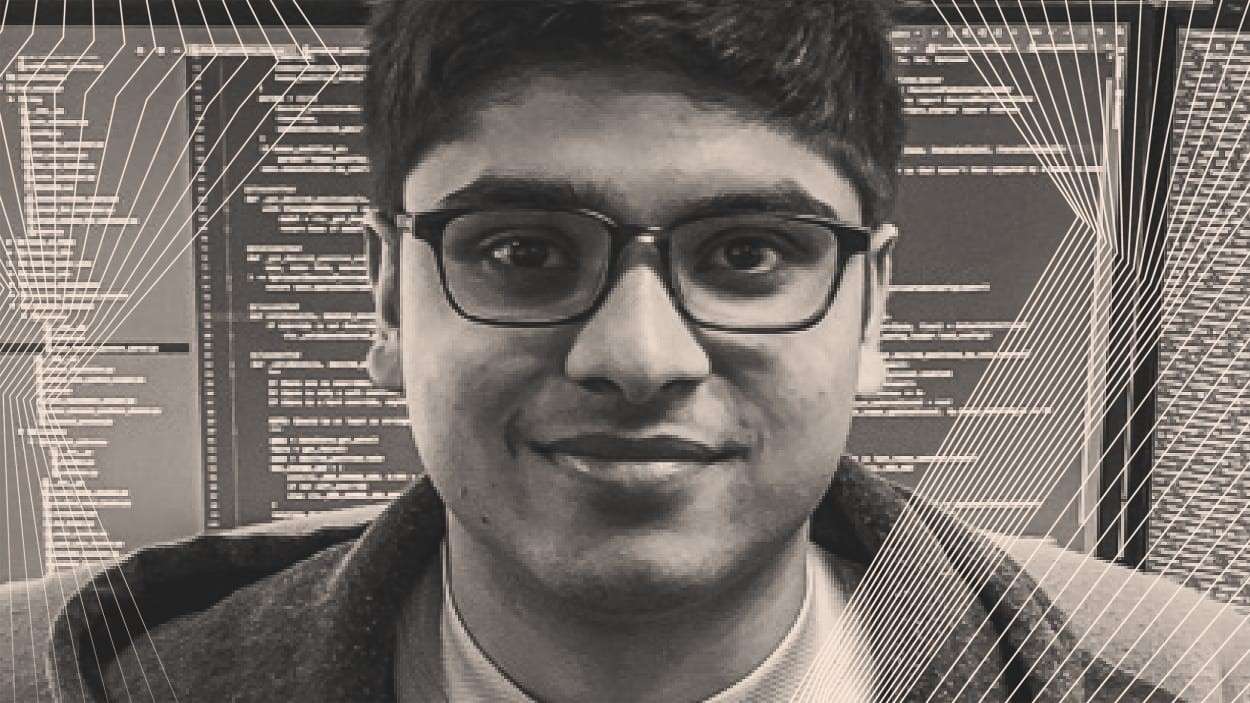FTX executive describes excess spending, celebrity hobnobbing, and his panic over missing billions
On the balcony of their $35 million penthouse apartment in the Bahamas, as evening fell, Nishad Singh asked his boss and onetime roommate, Sam Bankman-Fried, for a rare one-on-one meeting. Singh had just learned that there was a $13 billion “hole,” as he put it, in the finances of FTX—money that FTX was supposed to be storing as customer deposits, but which Bankman-Fried’s trading firm Alameda Research had used up. “I was really hoping I misunderstood,” Singh testified.
As Singh paced around the balcony, with its pool, Moroccan-inspired latticework, and purple mood lighting, Bankman-Fried “was reclined on one of the white, like, chaise chairs,” Singh testified in Manhattan federal court on Monday, where Bankman-Fried’s fraud trial is in its third week.

“‘Caroline’s really freaked out,’” Singh recalled telling Bankman-Fried, referring to former Alameda CEO Caroline Ellison. Bankman-Fried had recently asked Singh and another top lieutenant, Gary Wang, for their thoughts on shutting down the trading firm Alameda. When Singh asked Ellison how feasible shutting it down was, “she said, I believe verbatim, ‘That’s impossible,’” Singh said. Ellison revealed that Alameda owed FTX customers that $13 billion—money it had taken from FTX customer deposits. “I was really afraid,” Singh said.
Bankman-Fried’s response on the balcony that night was “‘I’m not sure what there is to worry about,’” Singh recalled, though allowed that “‘we are a little short’” on liquid assets.
“I said, ‘Jesus effing Christ,’” Singh testified. “Sam said, ‘Yeah, this has been taxing me some 5% to 10% of my productivity.’ I asked what the hell the plan was, what are we gonna do? Sam said he’s not too worried.”
Singh added, “I was blindsided and horrified; I felt really betrayed. Something I thought was a beautiful force for good had turned out to be so evil.”
Within weeks, FTX and Alameda imploded.
“I was a billionaire”
Singh, head of engineering at FTX, began as a software engineer at Alameda Research, Bankman-Fried’s crypto trading firm, in 2017. In 2020, he transferred to FTX, taking on increasing responsibilities. The two had known each other since high school in the Bay Area, where Singh was close with Gabe Bankman-Fried, Sam’s younger brother, who ran a PAC funded by Sam.
Soft-spoken, detailed, with excellent recall and a habit of addressing the jury directly, Singh proved a very good witness, describing acting as a moral foil to Bankman-Fried. Singh, who seemed much more willing to question Bankman-Fried’s decisions than cofounder Wang or sometimes-girlfriend Ellison, said he had become increasingly disillusioned by the onetime big-brother figure.
“I’ve always been intimidated by Sam,” Singh testified. “Sam is a formidable character. Brilliant. So I had a lot of admiration and respect for him. Over time that eroded.”
Singh also described his own emotional turbulence in the final weeks of FTX, once he discovered that $13 billion hole. “I was a billionaire,” said Singh, who once owned around 6% or 7% of FTX’s stock, a larger chunk than anyone except for Bankman-Fried himself and Wang, FTX cofounder and chief technology officer. Though once he found out about the shortfall he considered quitting “every day,” he also thought FTX’s only shot to repay customers was if he stayed on to help. By November, as FTX customers rushed to withdraw money that in many cases no longer existed, Singh testified, “I had been suicidal for some days.”
Excessive spending and celebrity connections
In testimony that took up most of the day on Monday, Singh described Bankman-Fried’s and FTX’s spending in some detail. Asked to describe Bankman-Fried’s approach to spending, Singh said it was “excessive,” noting he’d had “many” conversations about the spending, “many times.” He said he’d “express about how much I was embarrassed and ashamed at how much it reeked of flashiness; it didn’t align with what I thought we were building a company for.” Bankman-Fried responded that “I didn’t need to continue sharing” that opinion, Singh said.
FTX and Bankman-Fried, Singh testified, spent $200 million on K5, a firm run by former Hollywood agent Michael Kives. “He is, probably, the most connected person I’ve ever met,” Bankman-Fried wrote in a note about a dinner he’d attended at Kives’s house, listing attendees as Hillary Clinton, Doug Emhoff, Katy Perry, Orlando Bloom, Kate Hudson, Jeff Bezos, Kendall Jenner, and Kris Jenner. (Asked to explain who those people were, Singh gave able descriptions of most, and then said “Kendall and Kris Jenner, I honestly could not tell you what they do.”) Bankman-Fried’s note continued: “I think that if we asked them to arrange a dinner with us, Elon, Obama, Rihanna, and Zuckerberg in a month, they would probably succeed.”
Singh said Bankman-Fried was “very impressed with their level of connection to influential celebrities and entertainers.” Singh, on the other hand, was “very concerned” about routing money to the Hollywood-linked firm. At FTX and Alameda, Singh’s understanding was that “politicking and social climbing was not going to be rewarded, and here we were” doing both “in exorbitant amounts,” he said.
Assistant U.S. Attorney Nicolas Roos then ran through a spreadsheet of FTX’s endorsement deals: $205 million for naming rights and associated deals for the Miami Heat arena; $28.5 million to Steph Curry; $148 million to Major League Baseball (Singh wasn’t sure what the specifics were); $50 million to Tom Brady and Gisele Bundchen, plus an additional $18 million for Bundchen’s charitable giving; $10 million to Larry David for appearing in FTX’s Super Bowl ad. The total FTX spent on endorsements as of the spreadsheet’s date in March 2022: $1.3 billion.
The testimony then turned to Bankman-Fried’s spending on things like the $35 million Orchid penthouse. Singh and others, evaluating places they could live together, said there was “substantial debate” about buying the Orchid penthouse, because of the price and because it was “really ostentatious.” Bankman-Fried, he said, was “a fan of views,” and said he’d pay $100 million to have the drama over the apartment end.
Singh, who like Ellison and Wang has pleaded guilty and is testifying against Bankman-Fried in the hopes of getting a lighter sentence, also outlined how Sam and Gabe Bankman-Fried directed political donations made under his name for “advantageous optics.” Ryan Salame, another FTX executive who has pleaded guilty but is not cooperating against Bankman-Fried, had access to his bank account and would send donations in his name. “My role was to click a button” approving the request, he said.
In another instance, he said, Gabe Bankman-Fried flew one of his assistants to the Bahamas to meet with Singh and have him sign blank checks, which Gabe used for “making a lot of small donations to Democratic candidates.” (Sam Bankman-Fried has been charged with campaign-finance violations, but those are scheduled to be tried separately in March, and not in this trial; one of the counts Singh pleaded guilty to was a campaign-finance violation.)
Singh also discussed the core of the case against Bankman-Fried for alleged fraud, echoing what Wang and Ellison had testified to earlier. “For the customers, their money was being spent and they didn’t know it,” Singh said, and detailed about “doctored” financials shown to investors, the billions owed to FTX customers that “had been spent and lost by Alameda,” and the special privileges Alameda got on FTX’s exchange.
He also discussed backdating certain transactions to make Alameda appear that it had more collateral than it did, the point being “to fool the eventual target,” which was the Commodity Futures Trading Commission, or fiddling with accounting to make it look like FTX’s revenues were more than $1 billion for 2021, after Bankman-Fried asked what could be done to “get revenue over the line for $1 billion.”
What’s next for the trial
Cross-examination of Singh should begin Tuesday morning, after a bid by Bankman-Fried’s lawyers to postpone the trial until Thursday or cut short testimony tomorrow was denied by Judge Lewis A. Kaplan. The lawyers say Bankman-Fried has not been getting his proper doses of Adderall medication while in jail in Brooklyn or during his days in court, which is preventing him from participating fully in his defense. (He is getting only a single dose in the morning and another when returned to jail at night. His lawyers want him to get a 12-hour extended-release dosage before court.)
The defense team has not yet said whether Bankman-Fried plans to testify, but on Sunday night his lawyers filed a letter on the issue. “As we approach the defense case and the critical decision of whether Mr. Bankman-Fried will testify, the defense has a growing concern that because of Mr. Bankman-Fried’s lack of access to Adderall, he has not been able to concentrate at the level he ordinarily would,” his lawyers wrote.
In the courtroom, however, Bankman-Fried actually seems quite focused, which Kaplan noted Monday, saying: “I have not observed a problem with the defendant” in court.
(47)



